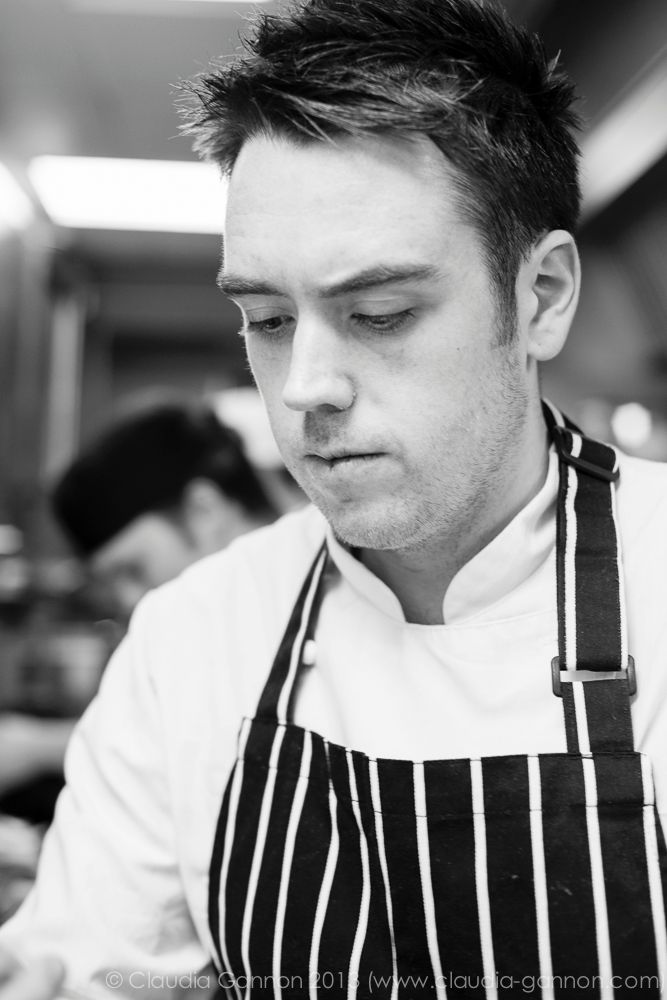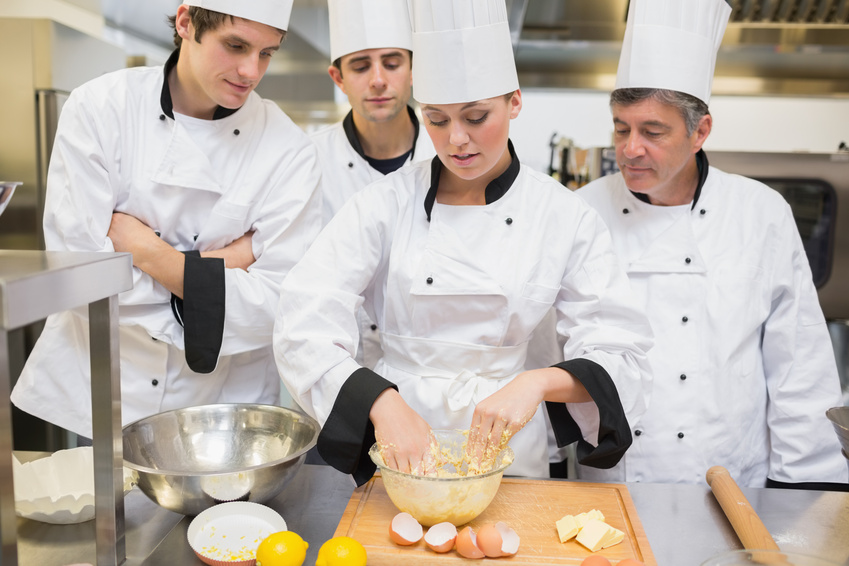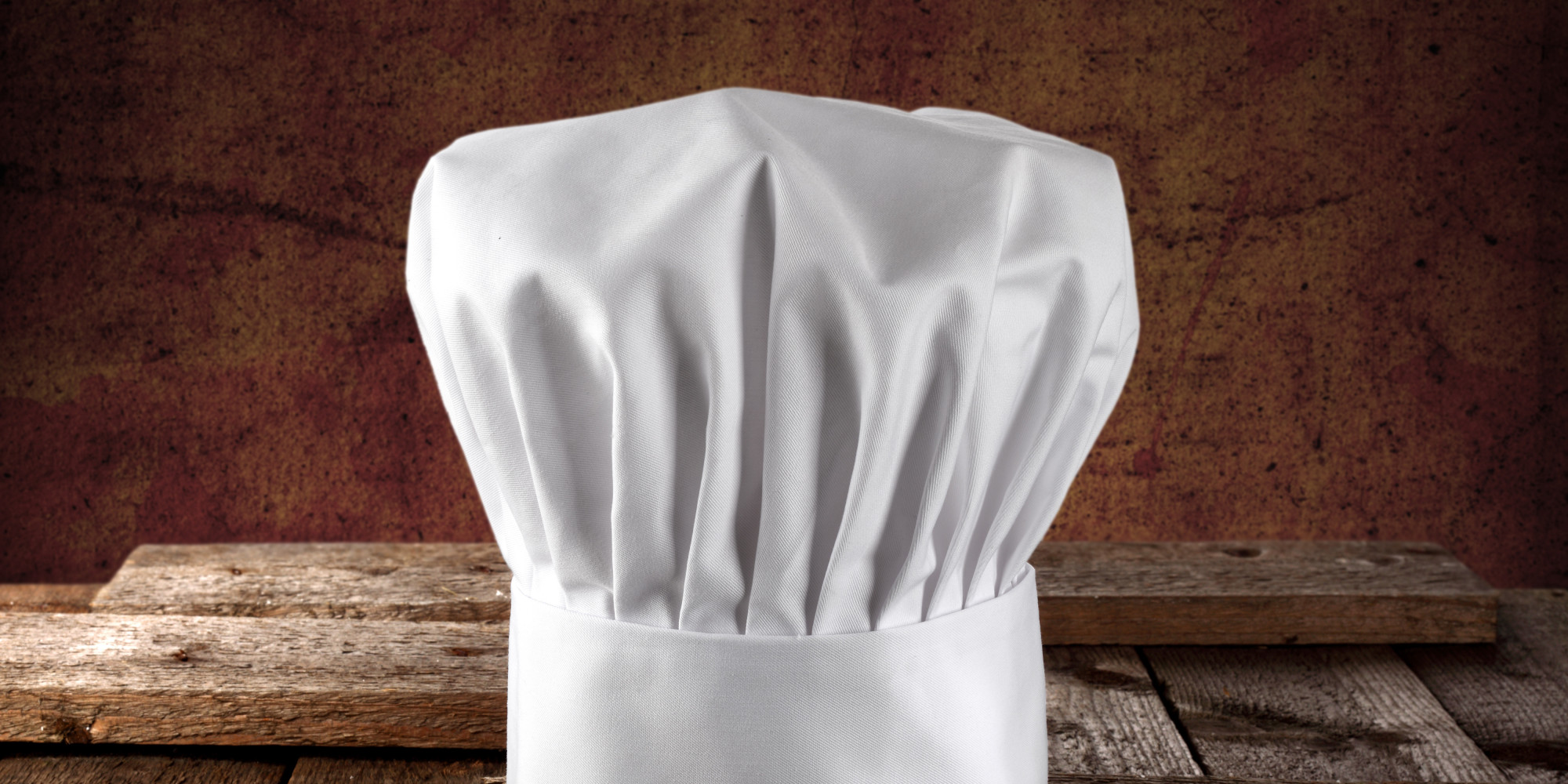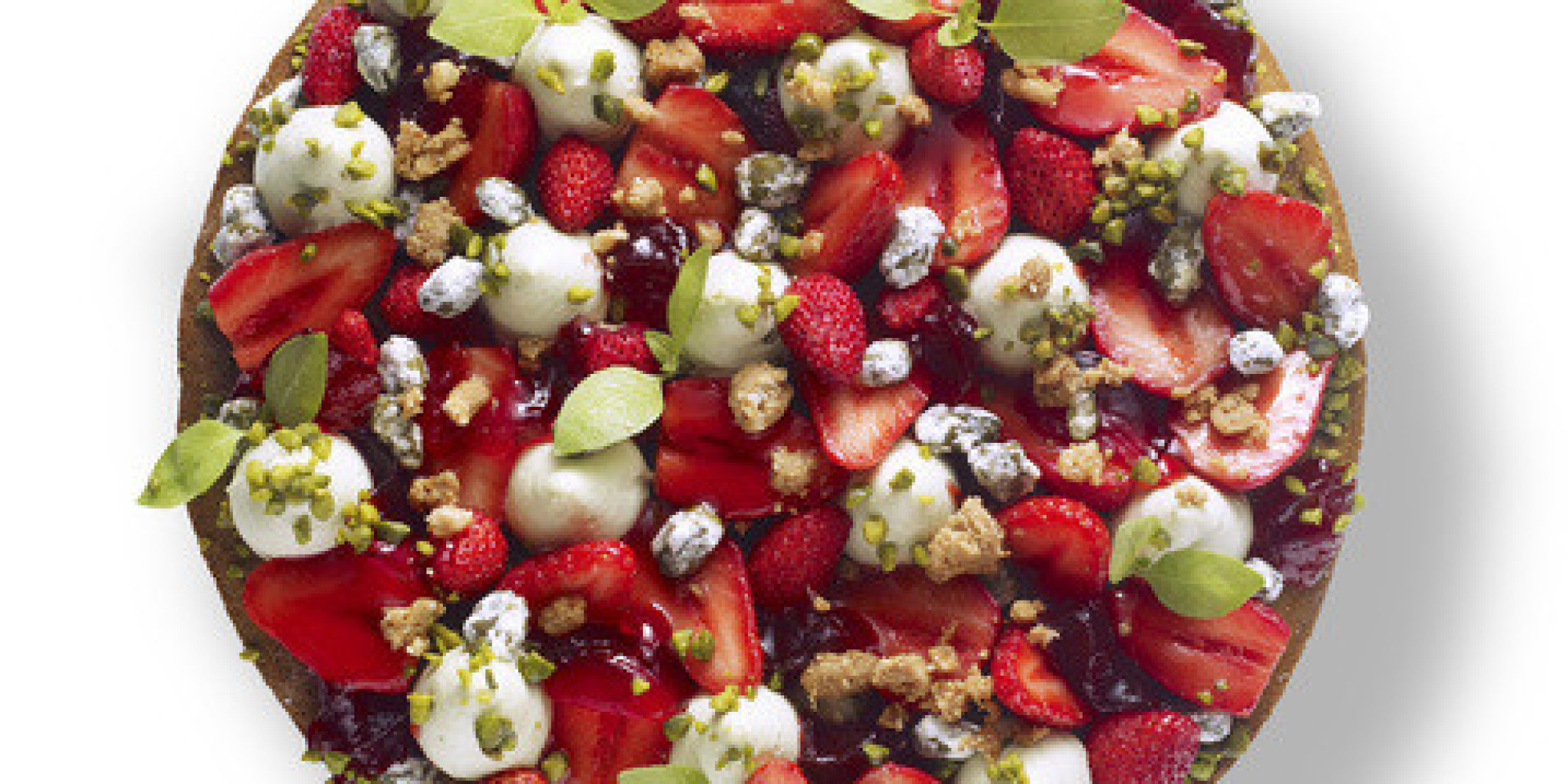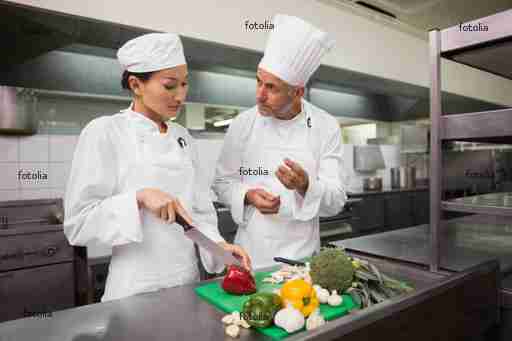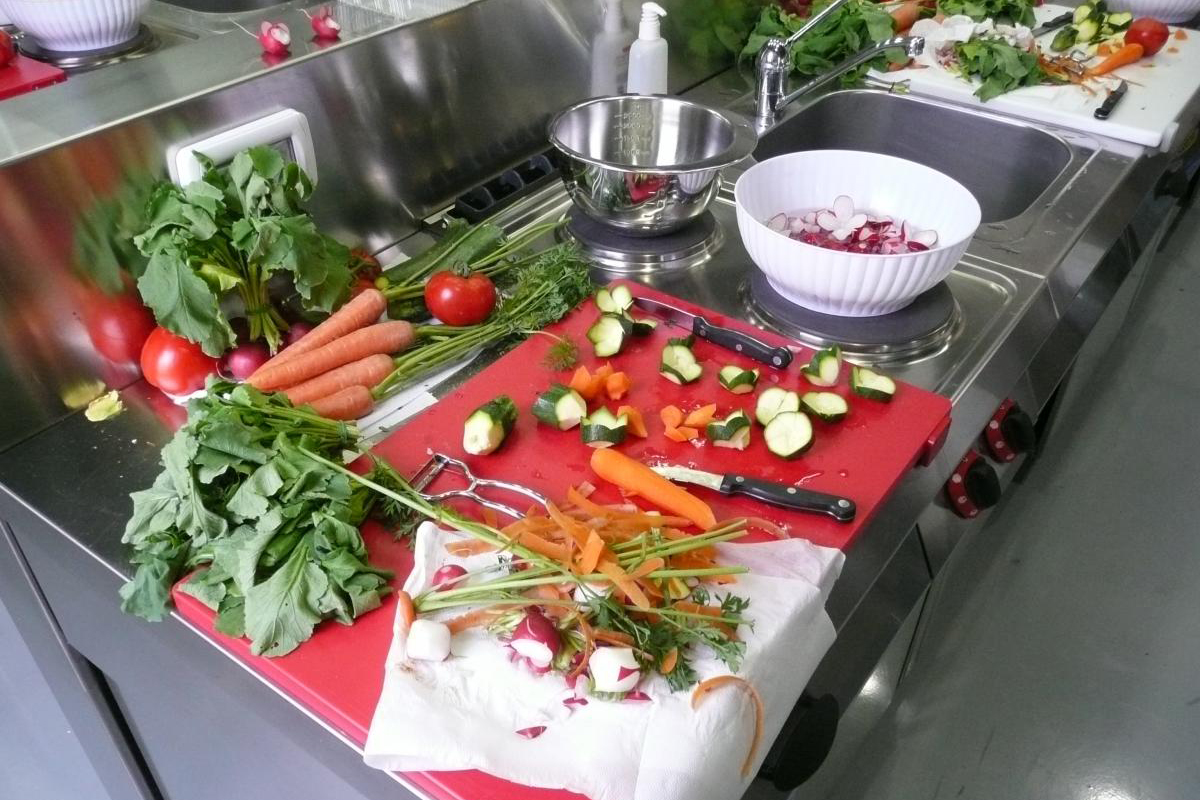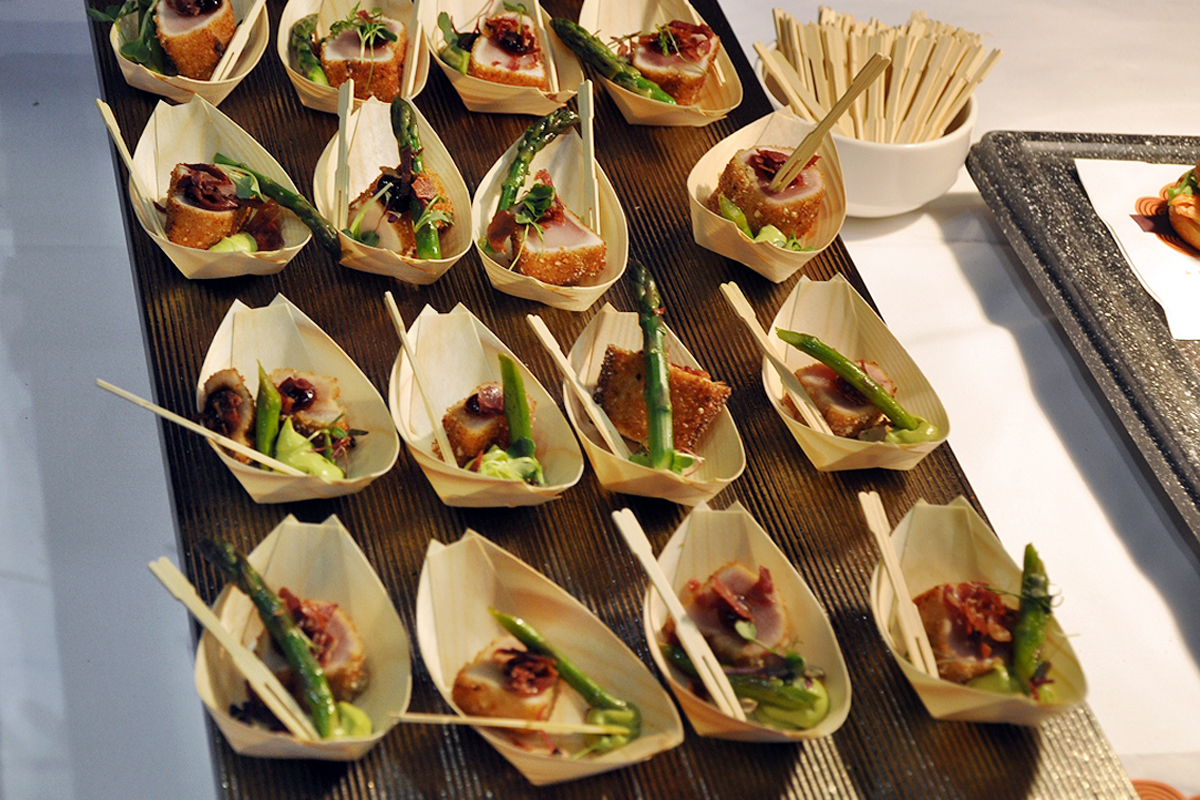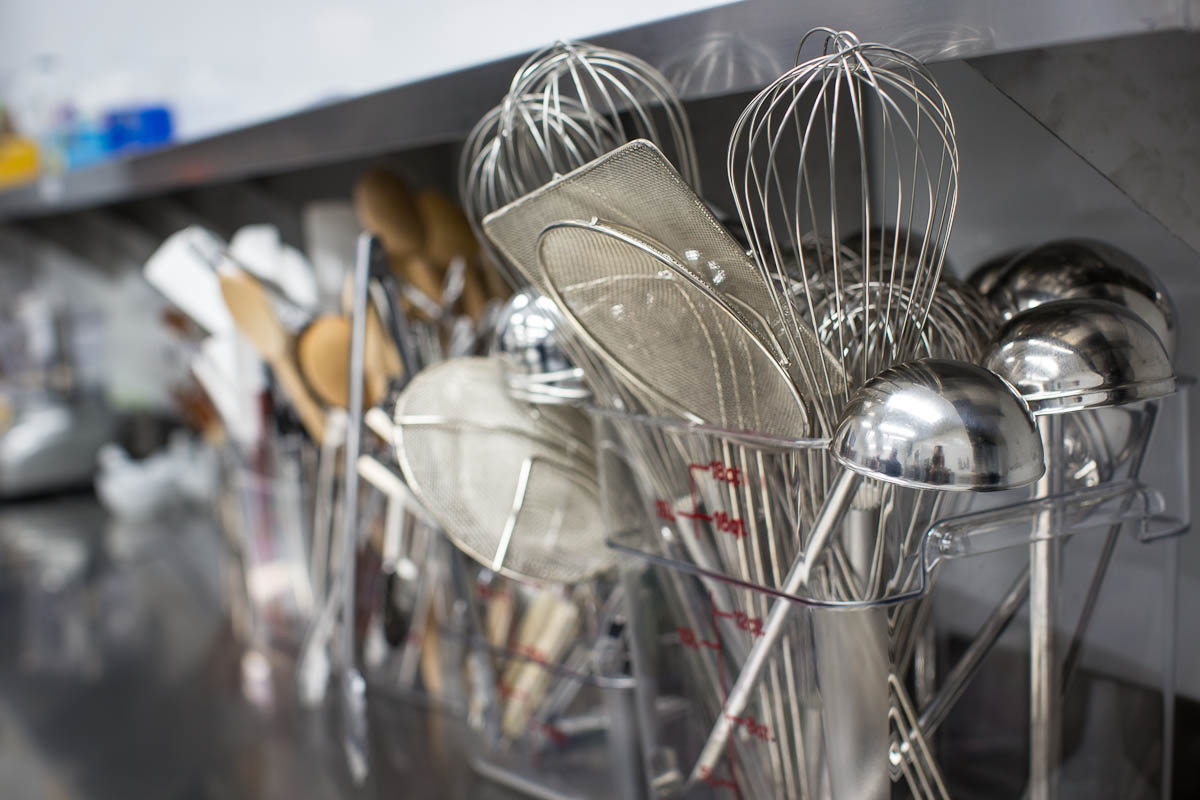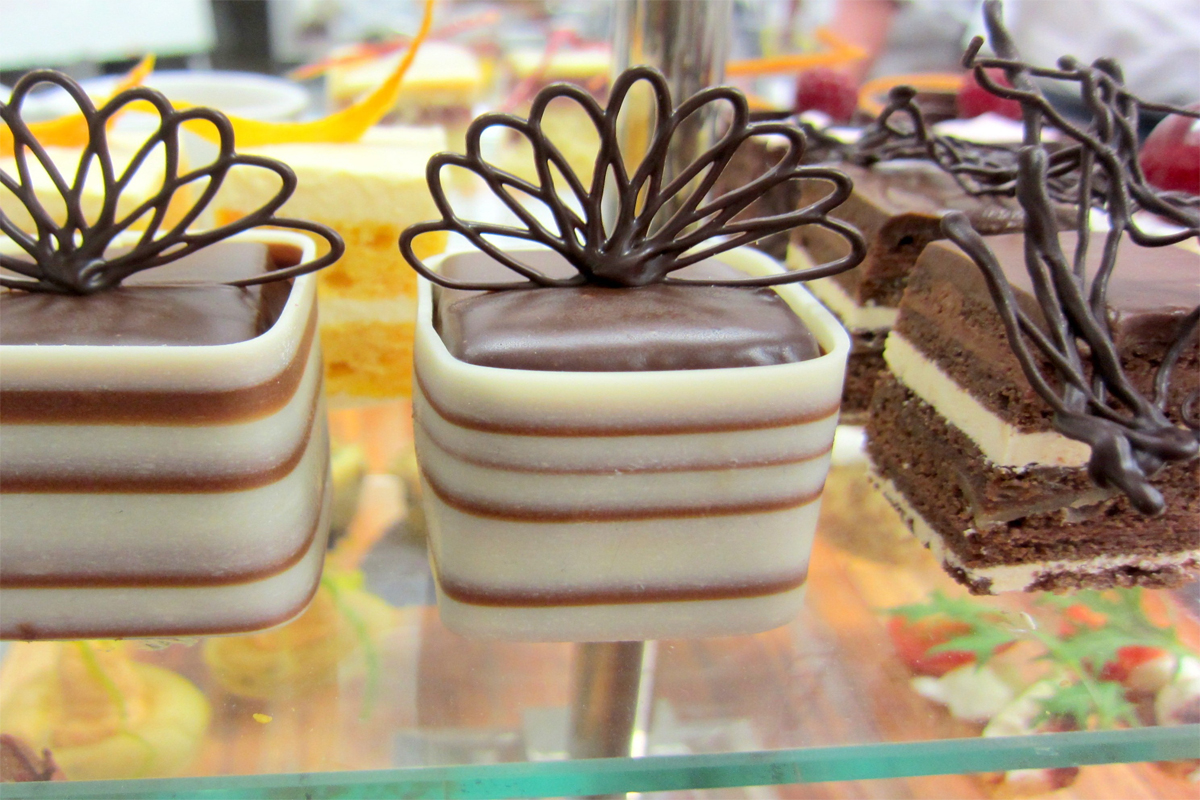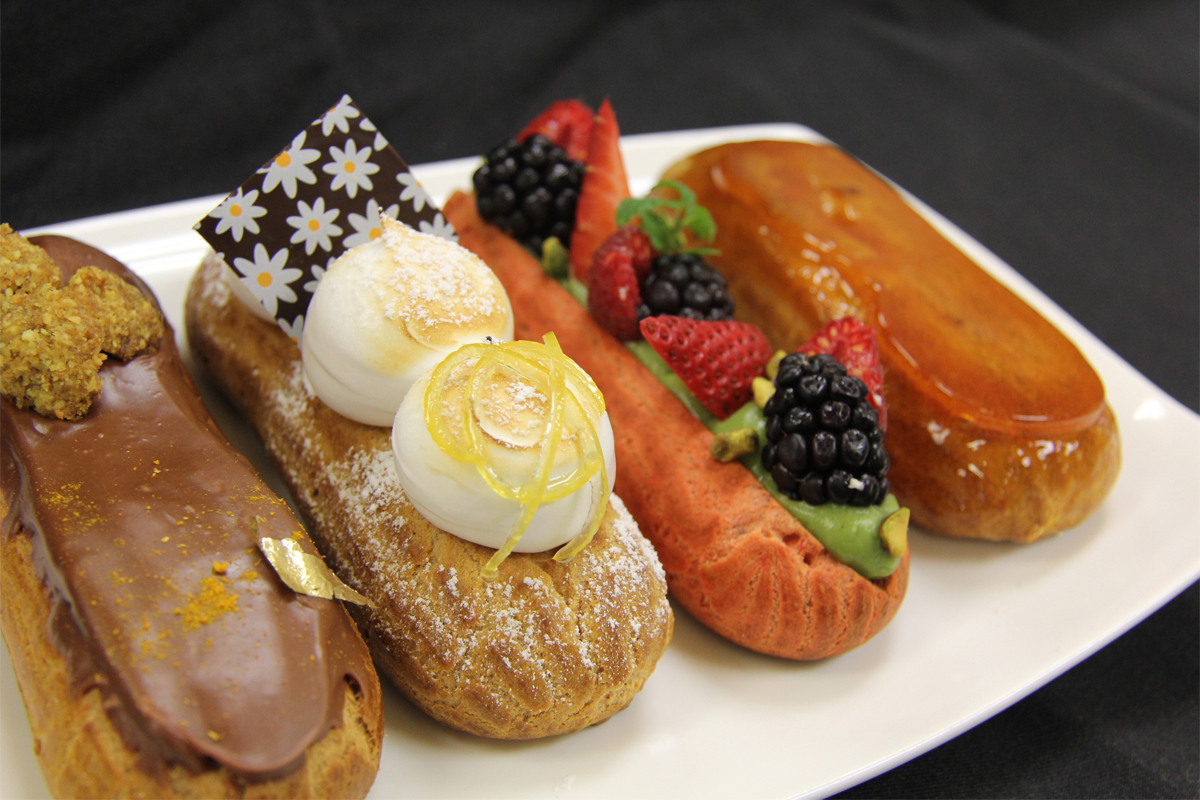Find a job in London
Surely, many times you have planned to leave your country, learn to speak English and live a new experience in your life. The truth is that we have very good news if this is your case. Stop shame and fear. Life is an adventure that you have to put forward to live it. You only live once.
The reality is that the United Kingdom is a country of opportunities and finding a job is easier than in other European countries. For example, in London there is a boom in the creation of new restaurants that need staff to work, especially chefs.
What do you need to work in London as a chef?
A medium English level
"You'll have to put yourself into the English if you want a good job." Let's see, let's not fool ourselves, when we are not in London, we think to have a good english level, when arriving in UK and we see that we do not understand even half of what they say, you realize that it is rather low, very low.
Nor are we going to scare you, since to get a job of anything with understanding English fairly is enough. But if you want a good job, you will have to put your effort into the English learning, because today there is a lot of competition and it is not easy to get a job in good condition.
If you really want to take the step of working in London, we advise you to start giving English a taste like you have never done before: consume movies in original version - you will discover that the actors are much more than an image and a gesture -, read your Favorite books in English, whatever you can think of to practice, will be good. You can also sign up for classes but, if you want to save, you can prepare yourself, buy support books or watch a course online and spend at least a couple of hours a day, buy support books or watch a course online and spend at least a couple of hours a day.
Updated documentation
To work in London it is very important to have the documentation in order. Check and make sure that you have all the documents in order and that there are none about to expire so that no problem arises when you go flying. To go to London with the DNI is enough, but we recommend that you also get your passport because there they use it a lot for different formalities. On the other hand, we also advise you to apply for the European Health Card (TSE) as it is a free procedure, in which you will only waste a little time, and make sure you are covered until you start working in London and get your number of Social Security in the United Kingdom (NiN).
Once you are established in London, look for your nearest GP center and register to be assigned a GP (General Practitioner). To do this, you will need proof of residency - for example, a letter from the bank that has reached your name at your London address - and proof of identity.
English mobile number
«There are a lot of companies to get an English mobile number». Having an English mobile number is very important because it is necessary to perform any management, from looking for a flat or job to getting your NiN. So it is advisable to be one of the first steps you take when you arrive to work in London.
In any store like The Phone House or similar, you can get a SIM card with “pay as you go” , instead of a contract, which is much more comfortable since you only have to recharge when you need it. And if there is a month that you are going on a trip there is no problem, you do not pay it and go!
Accommodation in London
"Finding a flat in London is not easy and there are many scams." To live in London, it is best to share a flat, since it is the most economical and is what the vast majority can afford. If your budget is still very limited, you can also share a room, even if this means sacrificing your privacy. In any case, do not even think about renting anything from outside UK since there is a lot of Internet scam.
This is a job you should do when you are already in London. So it is better to look for a cheap hostel for the first days, while moving and looking for a flat.
Searching for a flat will be one of your first priorities, since it is quite stressful and until you have no address you cannot do many of the necessary procedures.
In zone 1 it is quite difficult to find some “bargain”, so people usually live in zone 2 - which can cost you between £ 350 and £ 900, depending on the neighborhood and the house -, or in zone 3, where prices are cheaper but you pay more for the transportation.
Normally, prices are usually given per week "pw" (per week) or per month "pm" (per month). When they come per week, to calculate how much it costs you per month what you have to do is multiply the amount by 52 and then divide it by 12 . And remember that, when you find an apartment, it is normal to be asked for a month in advance as a deposit plus the month in which you are, although this price will sometimes be more expensive than others, depending on who rents it or the landlord.
The more you move away from the center, the cheaper the rent will be, but do not go over because what is later expensive is the transport. The subway is quite expensive depending on the area, but buses are cheaper and do not discriminate by zones. So look at everything well, because you can live further, but if you have a good bus combination, transport may not be expensive.
Finally, we recommend that you do not keep the first house or apartment you see, compare at least five before deciding. Anyway, do not worry too much because it is likely that you will later change your home for work or other causes.
National Insurance Number (NiN)
The NiN is very important if you live and work in London. If you want to work in London, you will need a NiN (National Insurance Number) that is like the English Social Security number. Getting it is very easy, since you just have to call the phone number that appears on theirwebsite and make an appointment. You can only make an appointment by phone and you need to be in the UK.
From your call they will give you an appointment in 2 or 3 weeks - the information about the appointment will arrive by letter to your address. You will have a very simple interview, for which you will need to provide all the documents you have that can identify you - such as passport, driving license, ID - and proof of residence - such as a letter that has reached you at the address of London where you live, or the floor contract.
As it is a long process, we advise you to call as soon as you get to work in London. And while they give you an appointment, you can fix the rest of the things.
Bank account
"One of the first steps to work in London will be to open a bank account." If you still do not have a job, you may have enough hits when opening a bank account, although there is everything. If you go without a job, make sure you tell them that you want to live in London indefinitely and that you have enough savings to live in London until you find a job.
The most flexible banks are Barclays and Lloyds TSB , so we recommend that you try these first, as well as always be very well dressed, because the image is taken into account in this country. The best thing about opening a bank account is that they immediately send you letters to your London address, which serves as proof of address.
And if you need to transfer money from your Italian account to your English account, don't let both banks rob you, use Transferwise.
Transport
"Unlike some countries, public transport in London is crucial." The first thing you have to do is buy an Oyster Card, which is a wallet card that allows you to pay for any public transport in London. In addition, with the Osyter Card you will get better rates for your trips . In the subway stations there are machines to recharge your Oyster Card. If you use the subway more than 10 times a week, a weekly or monthly bonus may be convenient for you, if you travel less than that, simply reload "pay as you go" (or topups) as many pounds as you want.
As we have said before, the bus is much cheaper than the subway and does not discriminate by areas like this, so if you can organize to travel by bus, you can save a lot of money. Another option that has been becoming fashionable in recent years is traveling by bike, which minimizes the cost of transport considerably despite the fact that, when it rains, it feels like little.
London culture
Enjoy your stay in London as much as you can. One of the first things you will appreciate when living in London is that there is a great diversity of people, of all cultures and colors, with stories of the most varied, which will enrich your personal experience. There are even times when, even if it seems a lie, it is hard to find English!
In general, people are quite open and willing to talk, but keep in mind that the English are not as direct as we are in Spain, the "British" often sweeten the phrases to soften them. At first it will seem silly, but in the end you realize that, using this method, you receive better service and attention.
Also keep in mind that the English usually shake hands when you first meet them, so don't throw yourself in both kisses if you don't want to "get paid" while they look at you with a dumbfounded face.
The English also take into account the issue of punctuality, so as you arrive 5 minutes late from nothing, be prepared to be angry or, at least, faces of disapproval.
«Going out in London is more expensive than in Italy or other european countries, so you have to manage it». To party in East London is the best and most authentic - the area where native English people usually go out of bars -, in the center you can also find party places but they are usually more expensive and full of tourists. Beware of the cubatas, which here you put a bottle of alcohol that tastes like nothing and they charge you a gold price.
You can always ask for doubles, but if you come from Italy or other european countries it will seem to you that they are robbing you of an armed hand. So we advise you to go to beer or cider. And whenever you go out, be cautious and look first for the night buses that will take you back home, since the subway usually runs until midnight, more or less, and then there are only night buses.
Another thing you will have to get used to is the carpet. Yes! How do you hear it! Here they put carpet on all sides and, although it seems to you the most unhygienic thing in the world, it is a thing that you cannot run away from when you rent a flat. Anyway, nobody has died for that (so far), so I guess nothing will happen to you.
After you have solved all these matters you can find your job and work as a chef in London.
Come Join Us
For further information, click our webpage: https://www.chefacademyoflondon.com/en/
Also, please don’t forget to visit us on Facebook https://www.facebook.com/ChefAcademyLondon/
Instagram https://www.instagram.com/chefacademyoflondon/









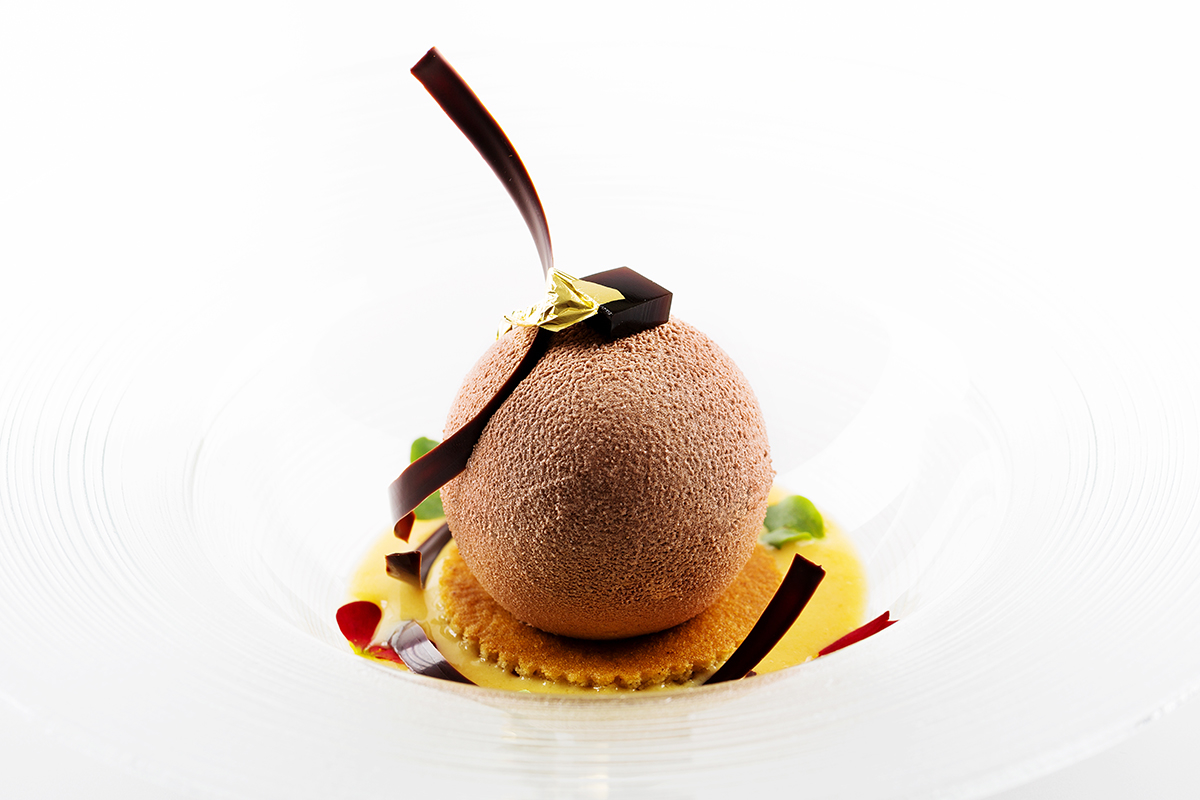 This is a call for all coffee lovers! Until Sunday the 8th November, you can discover the London coffee festival. Created for and by coffee lovers, this is a new immersive coffee experience that takes its visitors in a multi-sensory journey through five themed galleries: Coffee origins, Roasting and cupping, Brewing, Coffee and finally food pairing and Understanding taste.
This is a call for all coffee lovers! Until Sunday the 8th November, you can discover the London coffee festival. Created for and by coffee lovers, this is a new immersive coffee experience that takes its visitors in a multi-sensory journey through five themed galleries: Coffee origins, Roasting and cupping, Brewing, Coffee and finally food pairing and Understanding taste.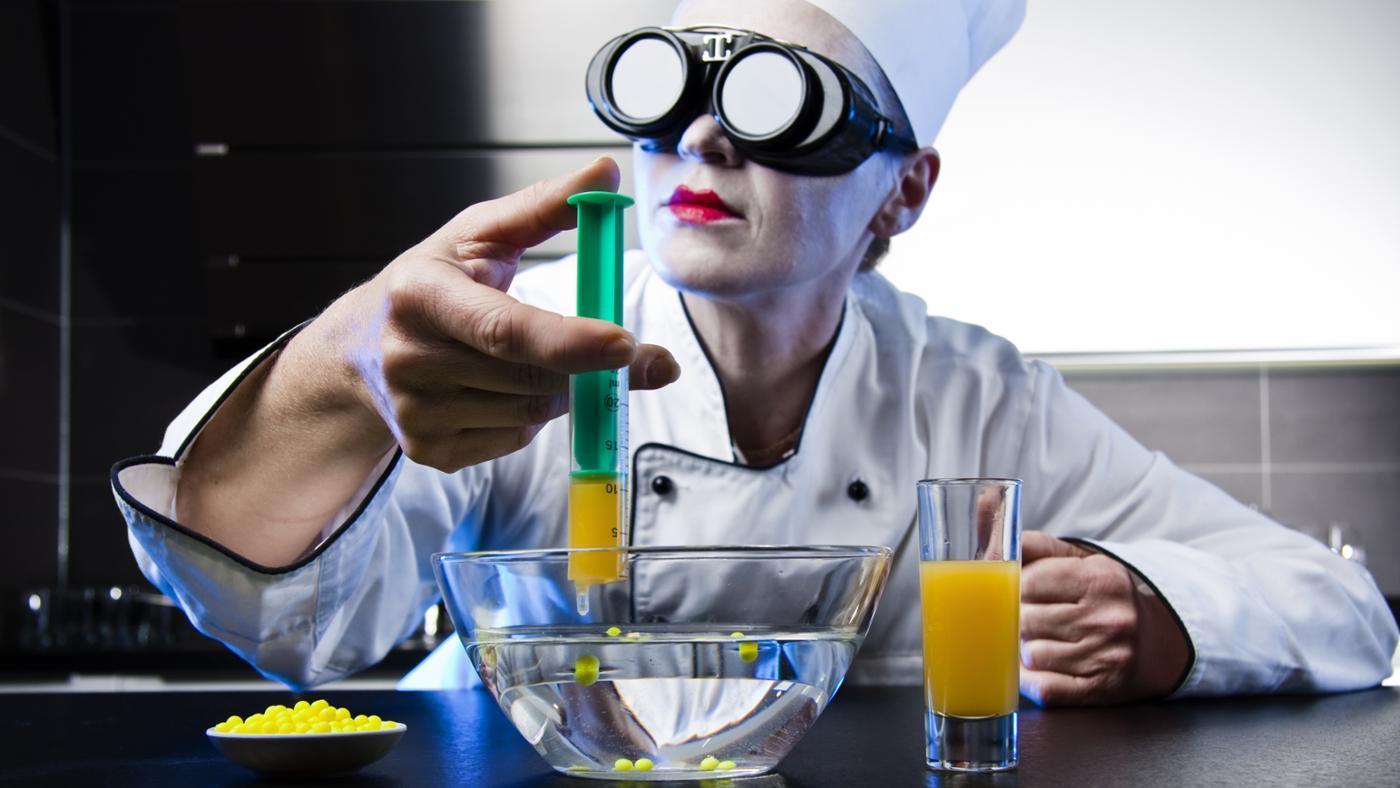 Is molecular science the future cuisine of choice? We have noticed lately this new trend called “molecular gastronomy”. We can see unusual and surprising food shapes, which play with and confuse our brains. A new invention recently appeared fooling our intellect and putting in question our perception of what we are drinking.
Is molecular science the future cuisine of choice? We have noticed lately this new trend called “molecular gastronomy”. We can see unusual and surprising food shapes, which play with and confuse our brains. A new invention recently appeared fooling our intellect and putting in question our perception of what we are drinking. A doctor from Loyola university in Chicago in United States has studied food benefits on our eyes health. Here in London at our culinary school Chef Academy, we are always curious about world food research. Indeed, as our other organs do, our eyes have their favourite food, and not only from a visual point of view, but also for their nutritional benefits.
A doctor from Loyola university in Chicago in United States has studied food benefits on our eyes health. Here in London at our culinary school Chef Academy, we are always curious about world food research. Indeed, as our other organs do, our eyes have their favourite food, and not only from a visual point of view, but also for their nutritional benefits.
 Chocolate, is a dear friend of the gourmands.
Chocolate, is a dear friend of the gourmands.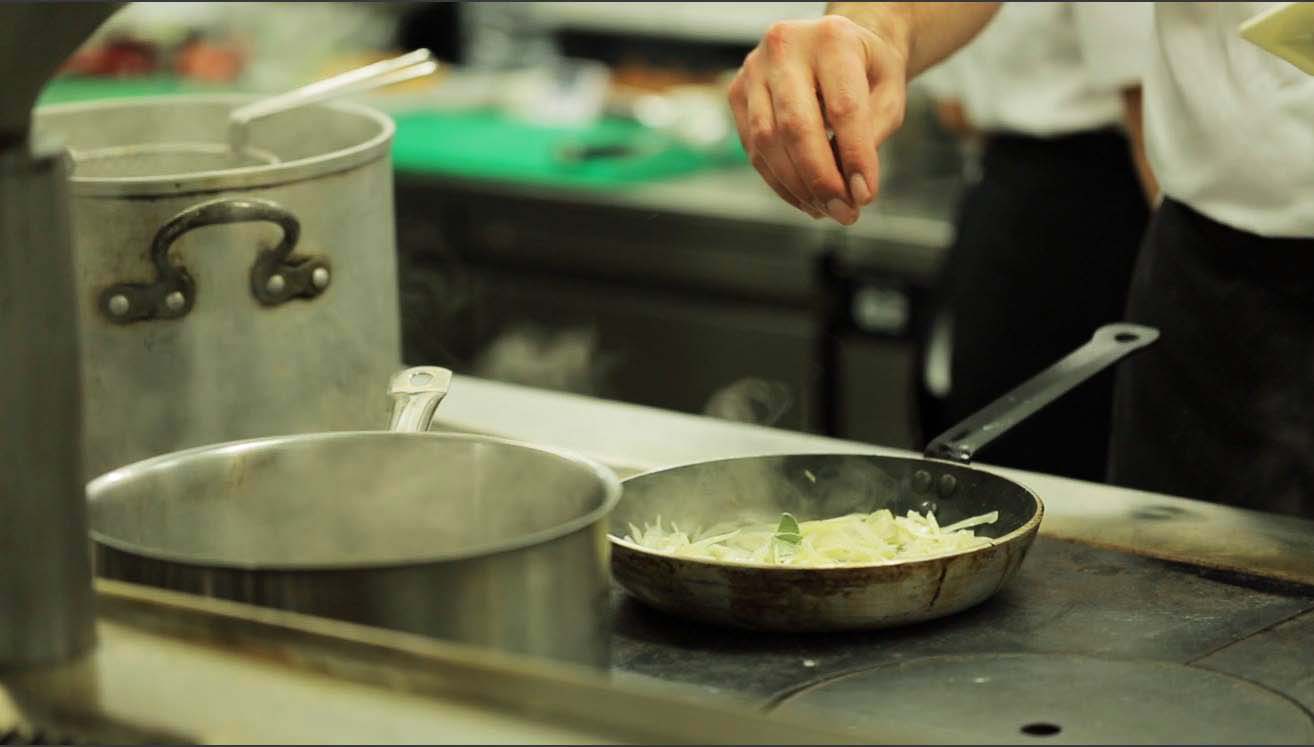 Two weeks have passed since we have cheerfully opened our professional laboratory kitchen to our new eager to learn cooking students.
Two weeks have passed since we have cheerfully opened our professional laboratory kitchen to our new eager to learn cooking students.

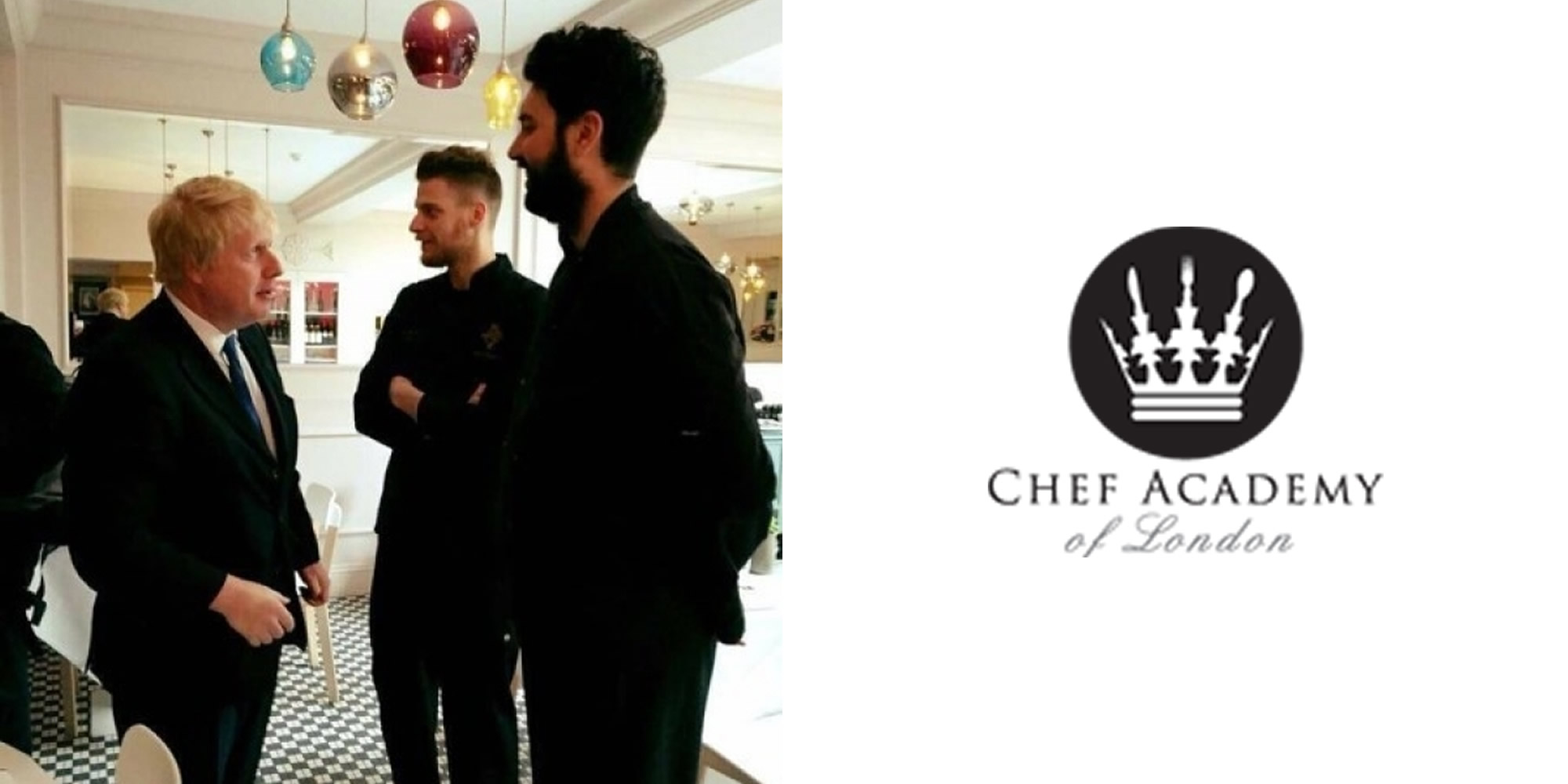 Here at Chef Academy London we send our congratulations to one of our students, Alessandro Colli, for hitting the headlines and winning an award at Wimbledon!
Here at Chef Academy London we send our congratulations to one of our students, Alessandro Colli, for hitting the headlines and winning an award at Wimbledon!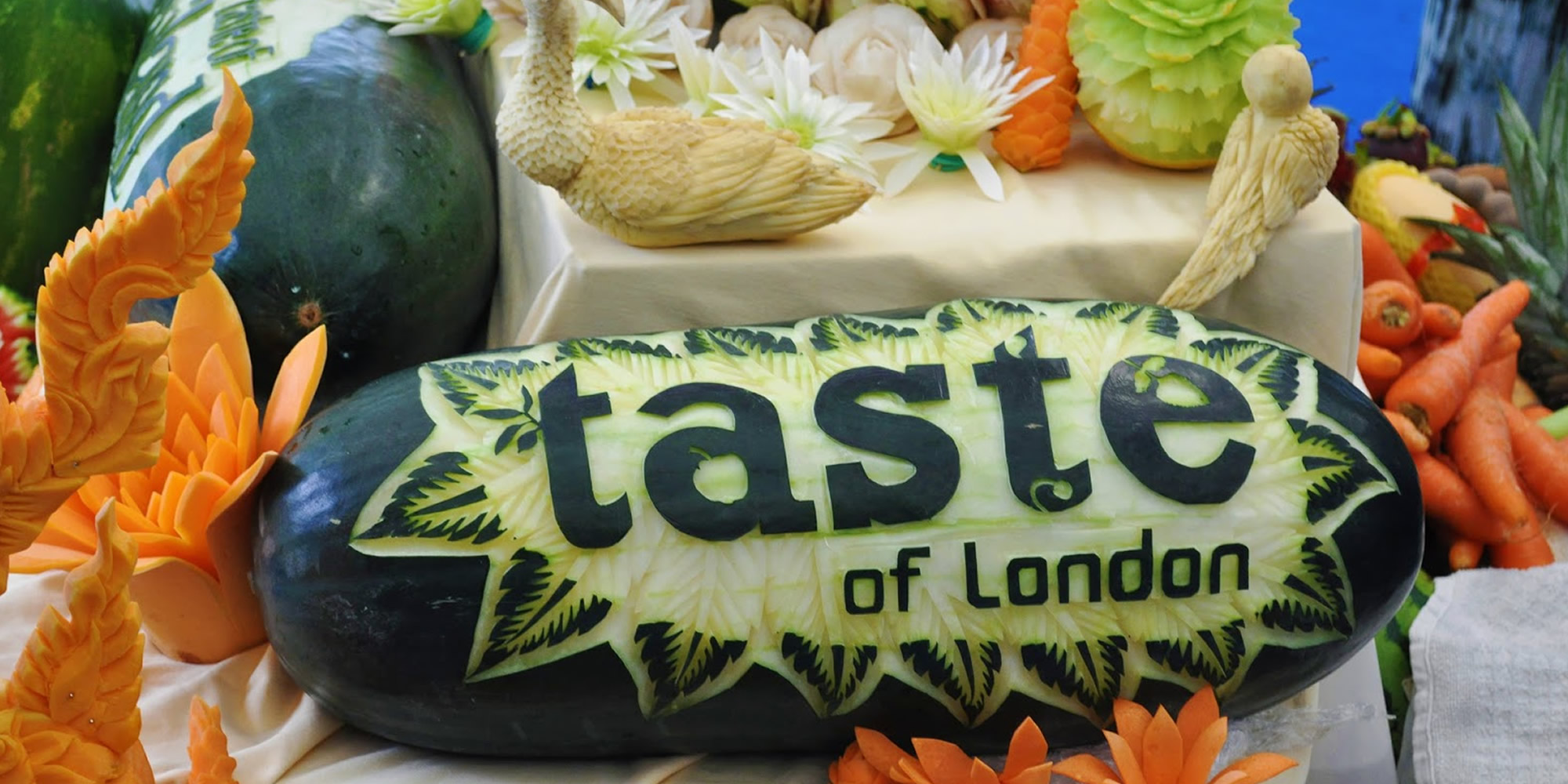 Taste of London returned to Regent Park last weekend 17th-21st June 2015. Thousands of culinary enthusiasts, tourists and foodies gathered to see what this year’s event had in store for them.
Taste of London returned to Regent Park last weekend 17th-21st June 2015. Thousands of culinary enthusiasts, tourists and foodies gathered to see what this year’s event had in store for them.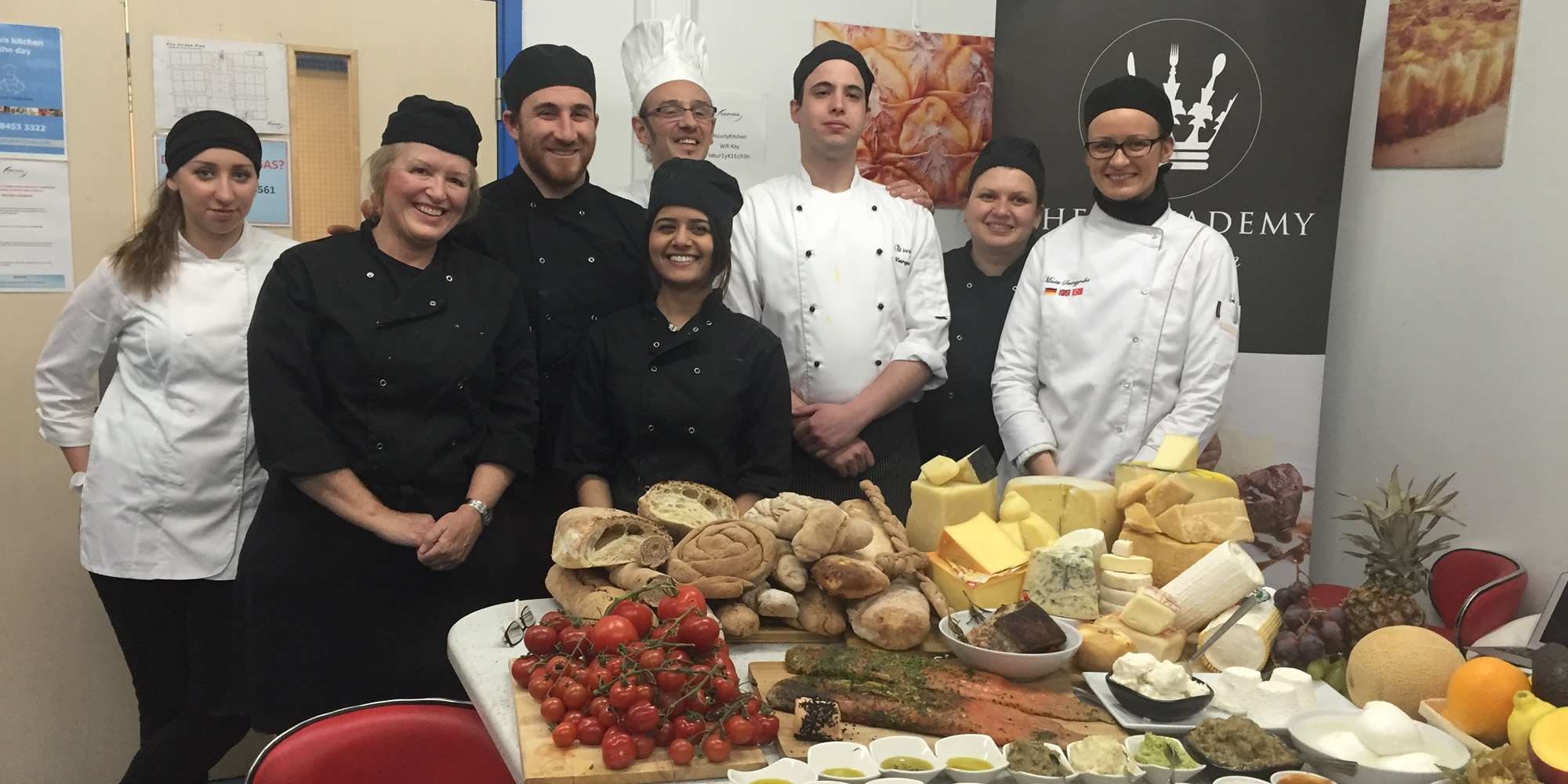 For the first two weeks of any of our culinary courses here at Chef Academy of London, students undertake the core Development Training. This is held in our development kitchen with our Executive Chef, Raffaello Amadio.
For the first two weeks of any of our culinary courses here at Chef Academy of London, students undertake the core Development Training. This is held in our development kitchen with our Executive Chef, Raffaello Amadio. Massimo Bottura is an Italian restaurateur, culinary genius and chef patron of the three Michelin star restaurant, Osteria Francescana, based in Modena, Italy. It has been listed in the top 5 at The Worlds 50 Best Restaurant Awards since 2010. After being ranked at 3rd Best Restaurant in 2013, this year at the 2015 awards, Osteria Francescana won 2nd place. Osteria Francescana has also received top ratings from ESPRESSO, the Touring Club Guides and Gambero Rosso.
Massimo Bottura is an Italian restaurateur, culinary genius and chef patron of the three Michelin star restaurant, Osteria Francescana, based in Modena, Italy. It has been listed in the top 5 at The Worlds 50 Best Restaurant Awards since 2010. After being ranked at 3rd Best Restaurant in 2013, this year at the 2015 awards, Osteria Francescana won 2nd place. Osteria Francescana has also received top ratings from ESPRESSO, the Touring Club Guides and Gambero Rosso.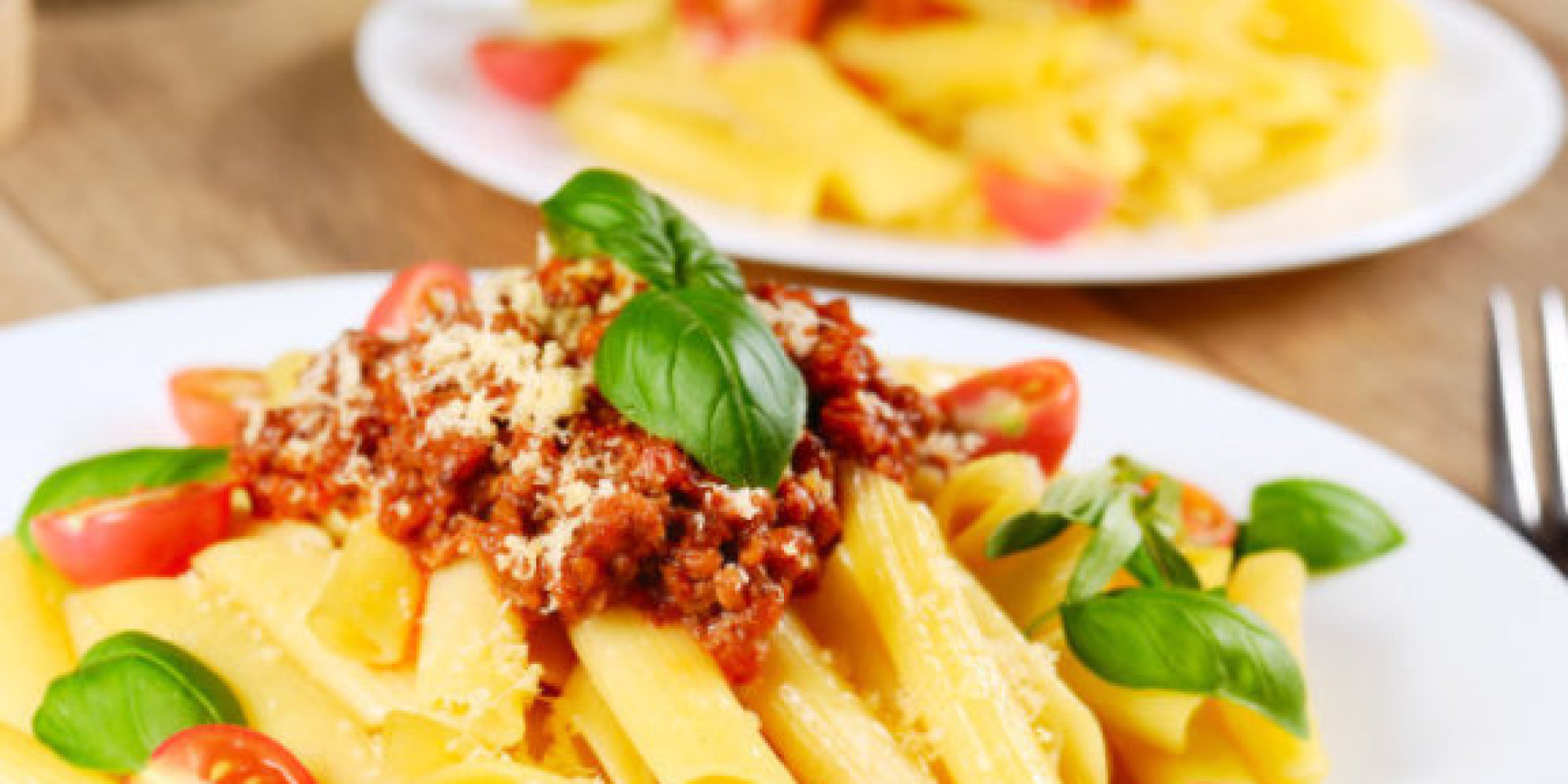 With most foods in Italian cuisine being made up of only a few ingredients, it is no wonder that many are delighted and fascinated by these foods. For them nothing matters more than quality of ingredients. After all everyone knows how Italy is famous all over the word for the very best ingredients: wine, extravirgin olive extravirgin olive oil, Modena's balsamic vinegar, cheese (Parmigiano Regiano DOP, buffalo mozzarella DOP,...), Parma Ham, etc. It is with emphasis on the importance of each ingredient and the need to prepare quality meals that all students who enrol in the school are taught the basics as well as the expertise skills of handling a real Italian kitchen. Whether it is preparing more articulate dishes as well as the simplest, at our Italian culinary school, you will learn it all. We are among the most sought-after chef institutions in London. But why is this so and why should you consider enrolling in our Italian culinary academy?
With most foods in Italian cuisine being made up of only a few ingredients, it is no wonder that many are delighted and fascinated by these foods. For them nothing matters more than quality of ingredients. After all everyone knows how Italy is famous all over the word for the very best ingredients: wine, extravirgin olive extravirgin olive oil, Modena's balsamic vinegar, cheese (Parmigiano Regiano DOP, buffalo mozzarella DOP,...), Parma Ham, etc. It is with emphasis on the importance of each ingredient and the need to prepare quality meals that all students who enrol in the school are taught the basics as well as the expertise skills of handling a real Italian kitchen. Whether it is preparing more articulate dishes as well as the simplest, at our Italian culinary school, you will learn it all. We are among the most sought-after chef institutions in London. But why is this so and why should you consider enrolling in our Italian culinary academy?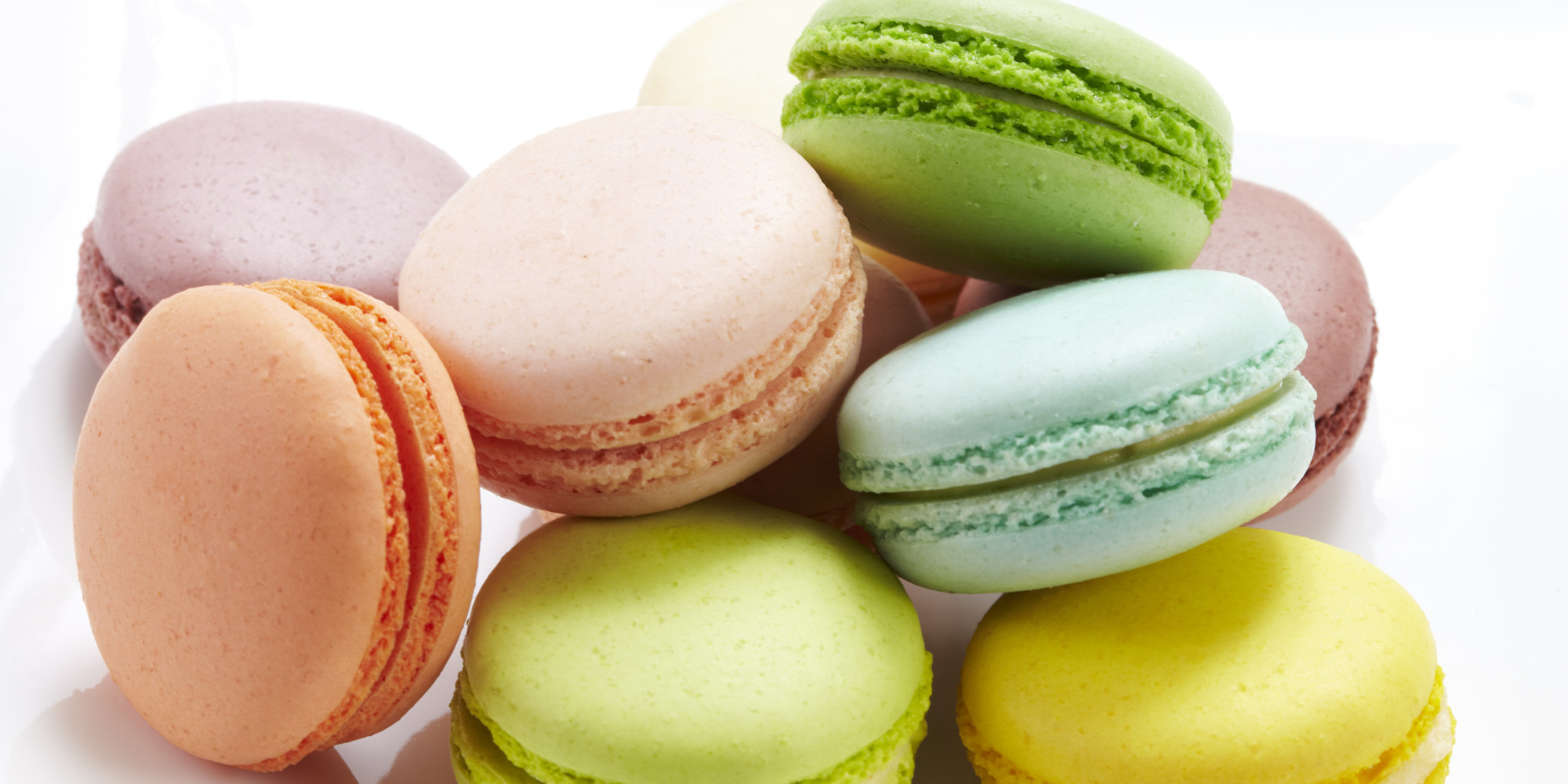 Do you love the smell of a freshly baked loaf of bread coming out the oven? Or the feeling of a croissant melting in your mouth?
Do you love the smell of a freshly baked loaf of bread coming out the oven? Or the feeling of a croissant melting in your mouth?
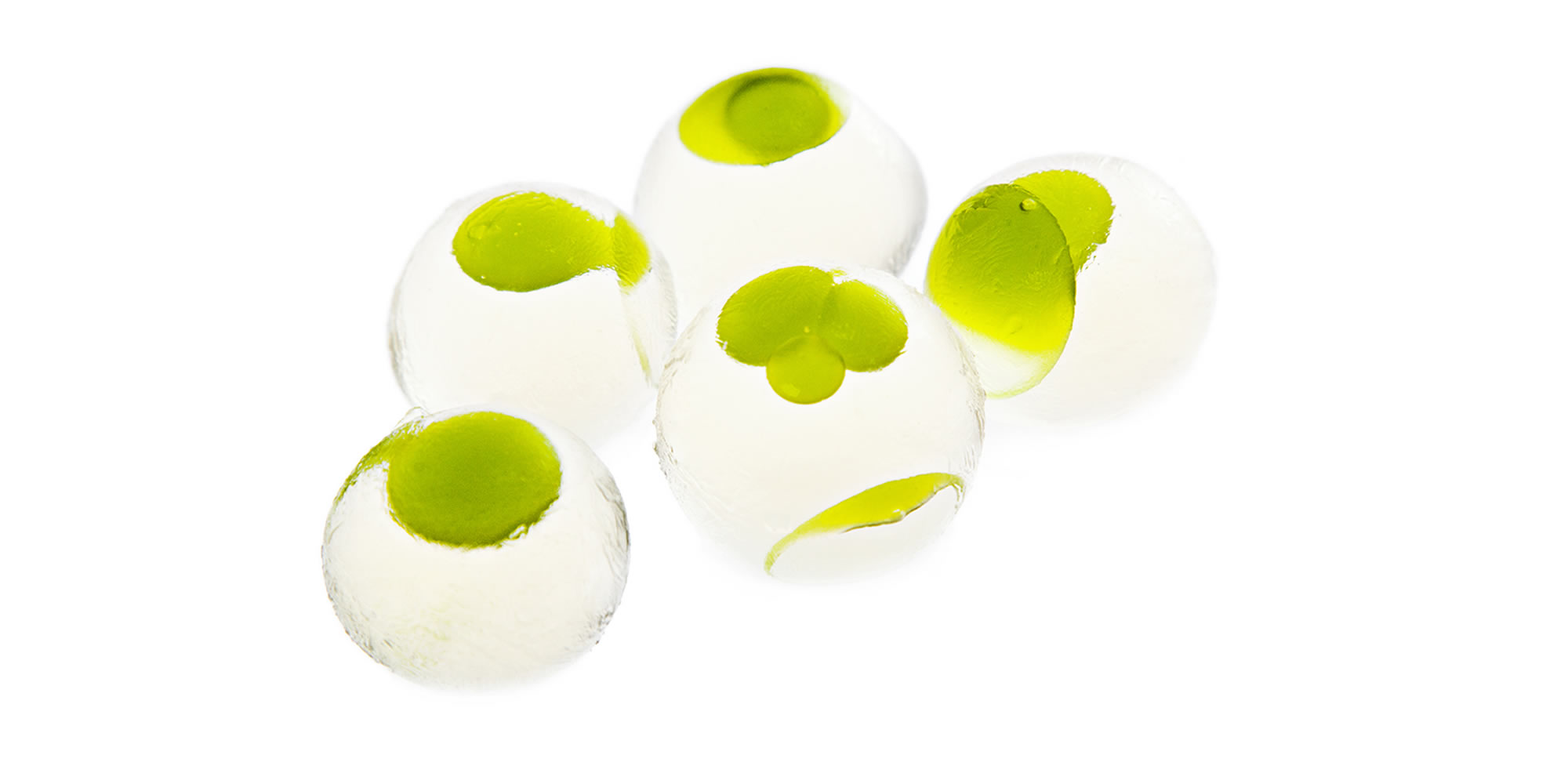
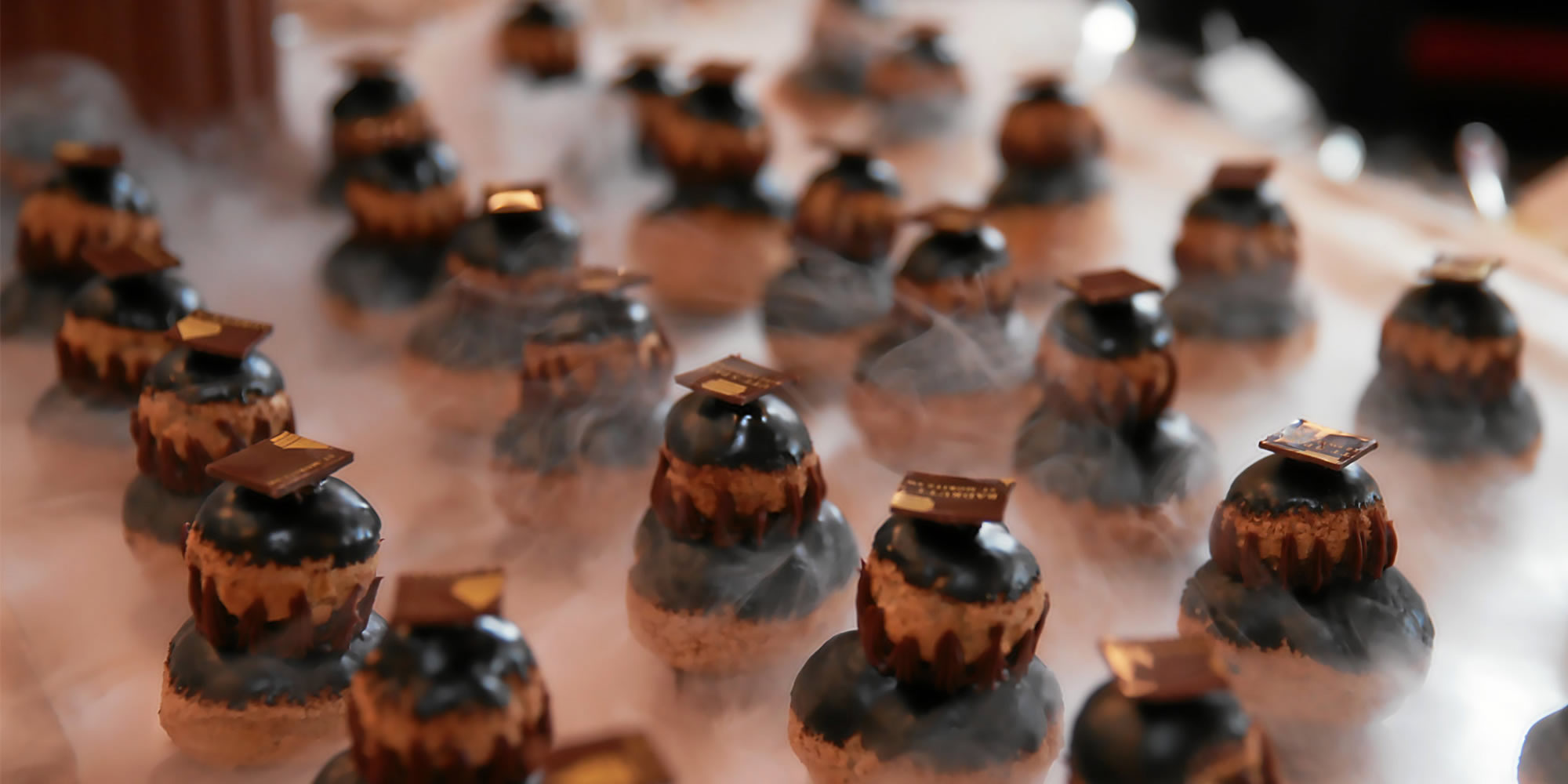
 Although it is possible to become a chef by training on the job and not attending any formal culinary courses, it is a very long drawn out process. You have to join the trade at the bottom of the ladder as a kitchen assistant, possibly washing dishes and work your way up. It is therefore always advisable to get formal training, attend reputed culinary courses and learn the basic theory and tricks of the trade.
Although it is possible to become a chef by training on the job and not attending any formal culinary courses, it is a very long drawn out process. You have to join the trade at the bottom of the ladder as a kitchen assistant, possibly washing dishes and work your way up. It is therefore always advisable to get formal training, attend reputed culinary courses and learn the basic theory and tricks of the trade.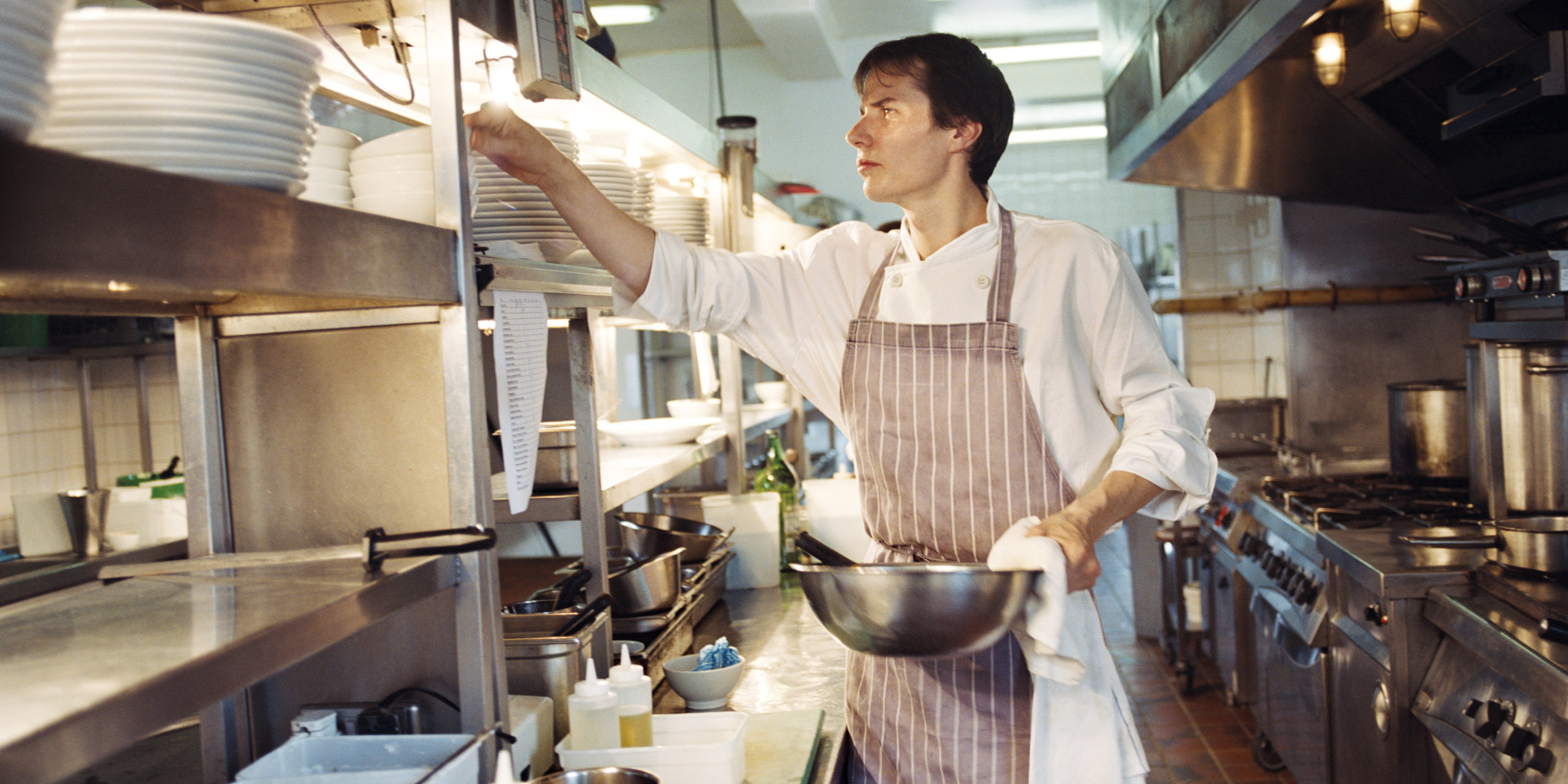 There are many
There are many  MasterChef: The Professionals is back on our television screens again! The competitive cooking show is a more recent version of MasterChef but with professional working chefs instead of amateurs.
MasterChef: The Professionals is back on our television screens again! The competitive cooking show is a more recent version of MasterChef but with professional working chefs instead of amateurs.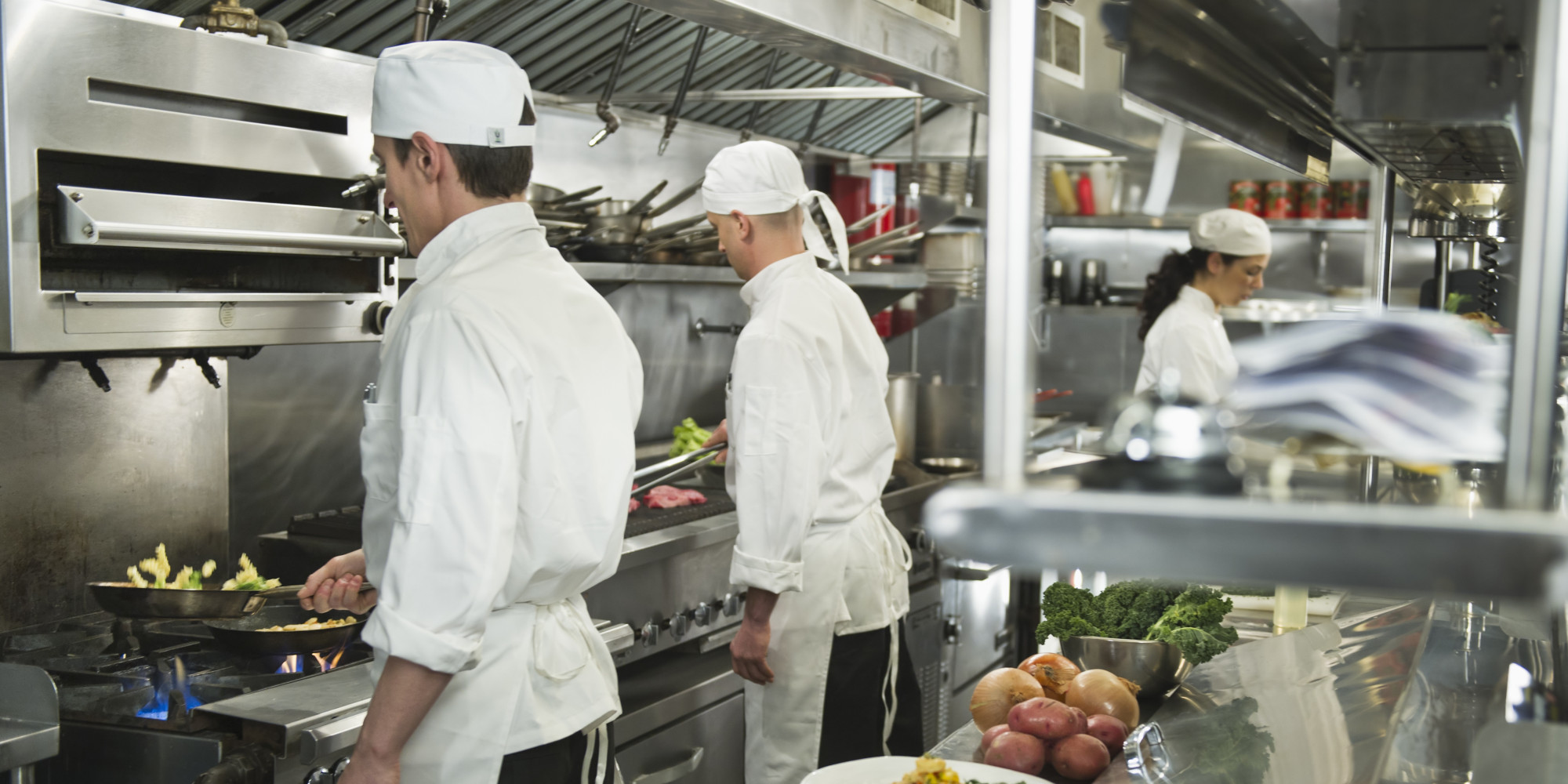 The legendary French chef George Auguste Escoffier in his book Le Guide Culinaire defined certain theories of
The legendary French chef George Auguste Escoffier in his book Le Guide Culinaire defined certain theories of 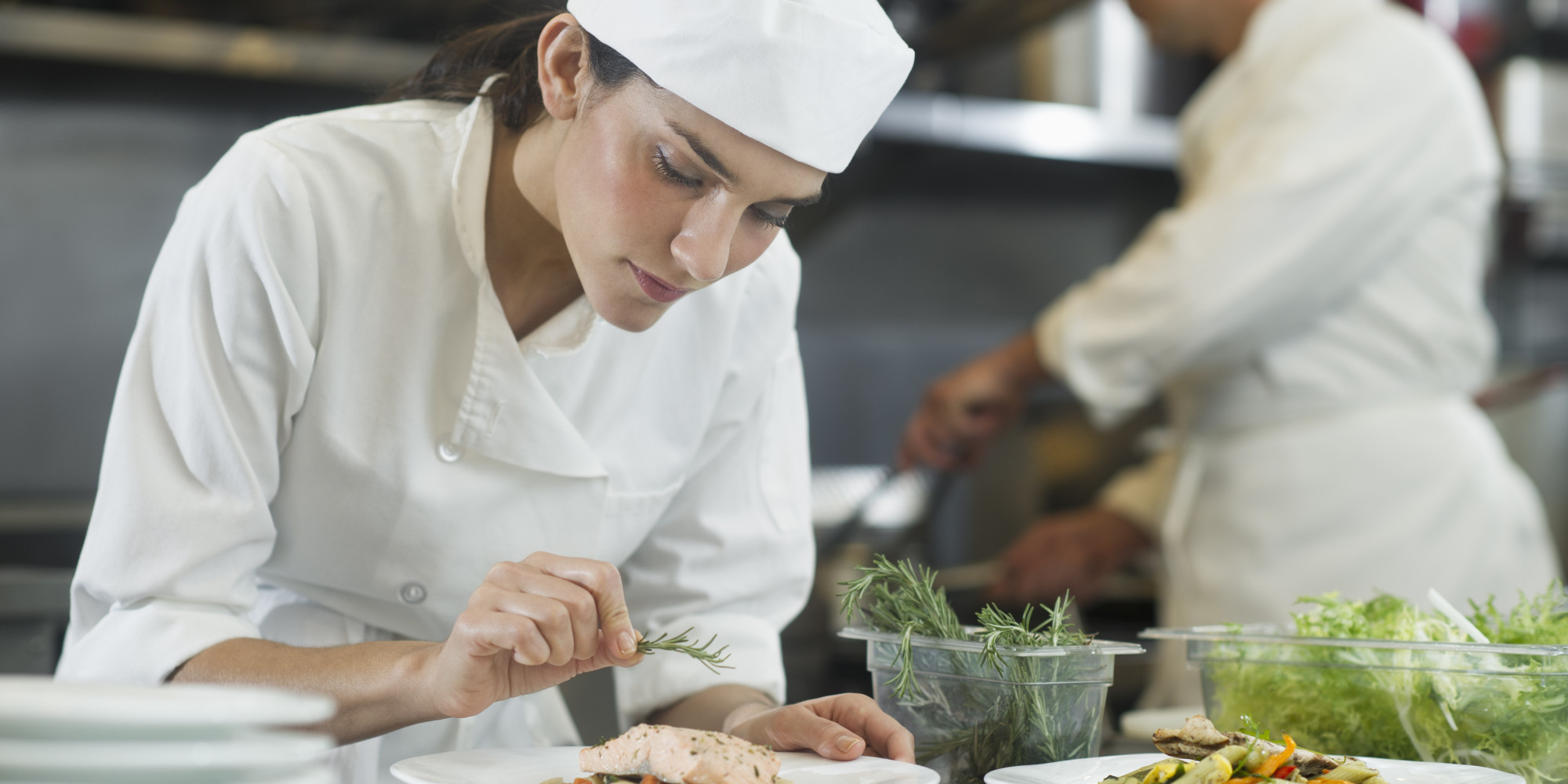 To
To 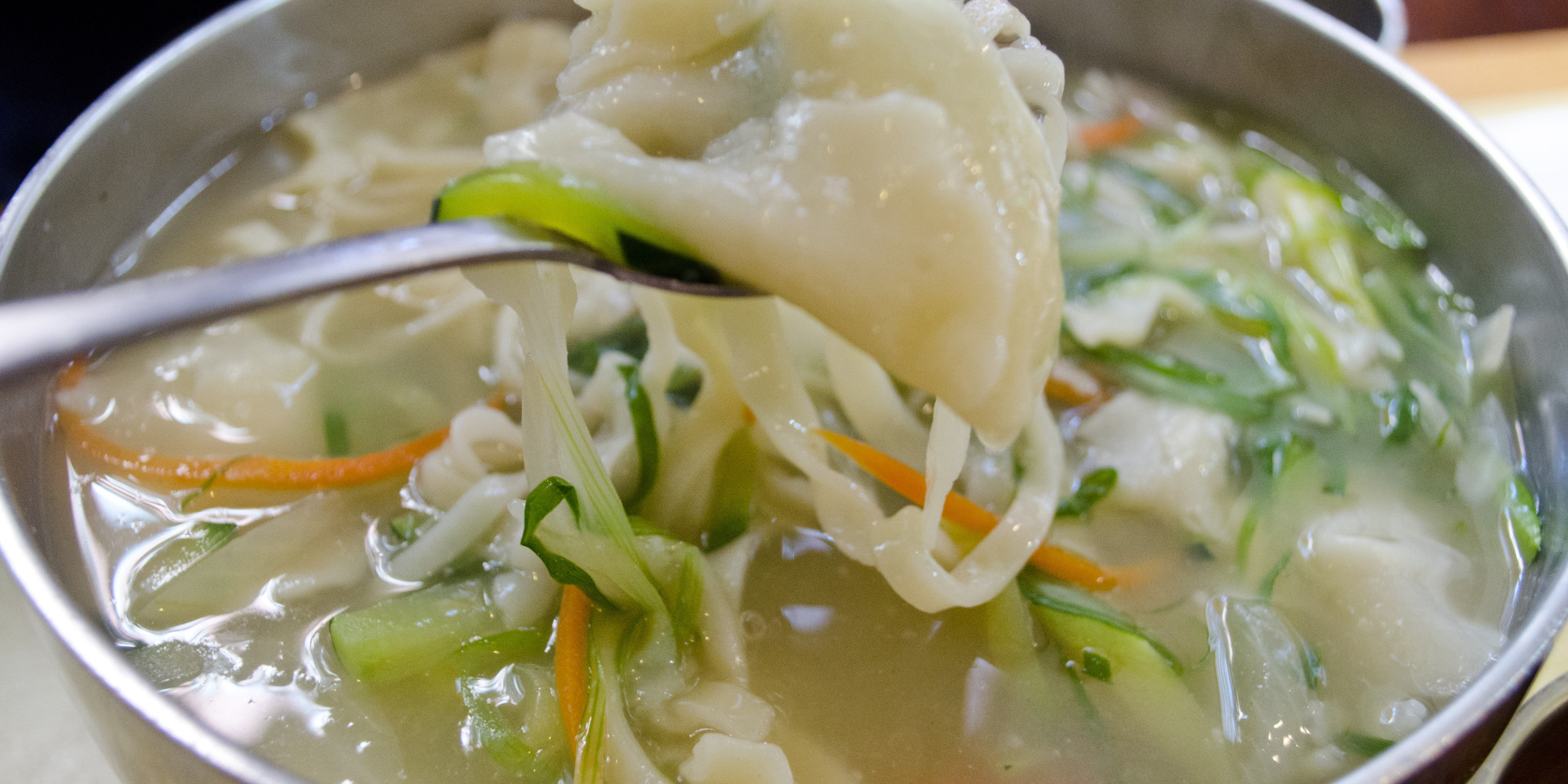
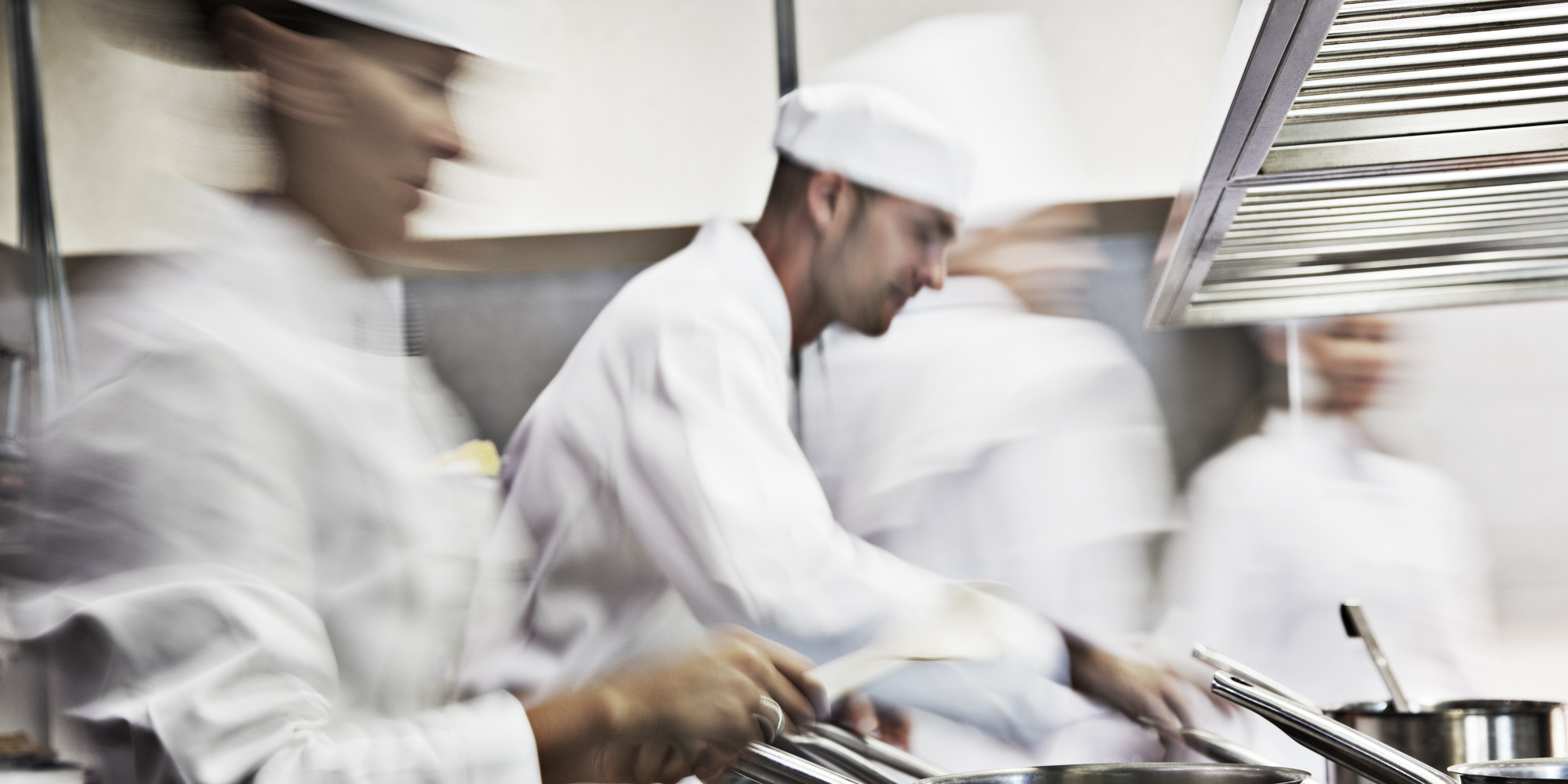
 A highly skilled person who is in charge of food production in a commercial kitchen of a restaurant, hotel, resort, hospital or cruise ship is normally referred to as a chef. Their duties are very diverse. Apart from managing the kitchen and overseeing its staff, they have to plan menus, work out the costing of each dish, and manage inventories and raw material procurement.
A highly skilled person who is in charge of food production in a commercial kitchen of a restaurant, hotel, resort, hospital or cruise ship is normally referred to as a chef. Their duties are very diverse. Apart from managing the kitchen and overseeing its staff, they have to plan menus, work out the costing of each dish, and manage inventories and raw material procurement.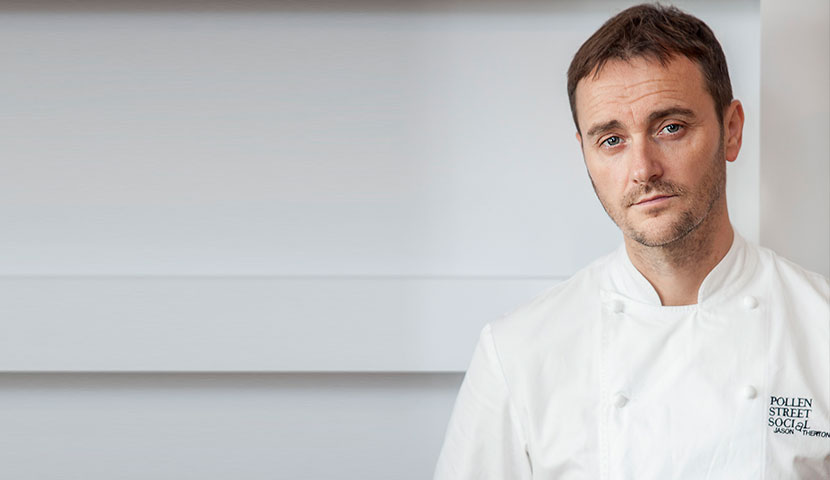
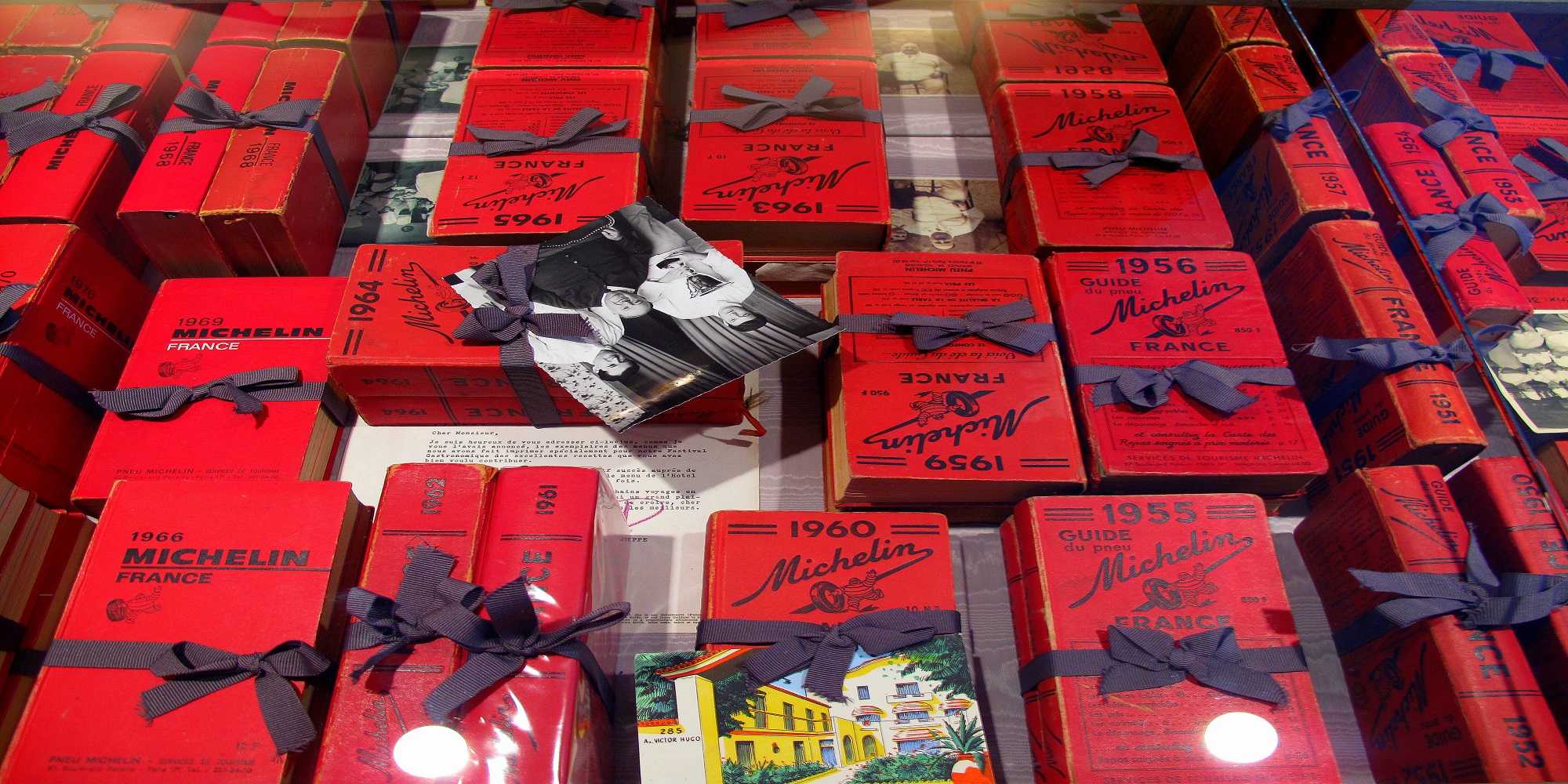 At the turn of the twentieth century, the Michelin brothers, Andre and Edouard, owners of the tyre company decided to publish a guide for the car owners of France. It listed the names and locations of petrol stations, garages and tyre mechanics, hotels and restaurants. The first edition of the guide, 35000 copies was distributed free.
At the turn of the twentieth century, the Michelin brothers, Andre and Edouard, owners of the tyre company decided to publish a guide for the car owners of France. It listed the names and locations of petrol stations, garages and tyre mechanics, hotels and restaurants. The first edition of the guide, 35000 copies was distributed free.